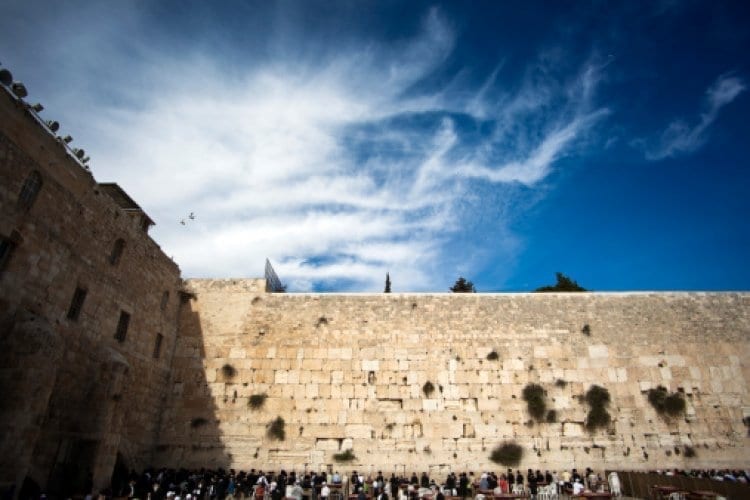The five main prohibitions of Tisha B'Av include
1. No eating or drinking
2. No wearing leather shoes
3. No washing / showering
4. No smearing oils on the body
5. No intercourse
Other actions are prohibited on Tisha B'Av because of mourning, such as: a prohibition of learning Torah, doing work, greeting people, sitting on a chair (until Tuesday noon) and more.
FAST ENDING TIMES
ISRAEL
Jerusalem – 8:04pm
Tel Aviv – 8:06pm
Haifa – 8:07pm
Beer Sheva – 8:05pm
Eilat – 8:01pm
UNITED STATES
New York City – 8:49pm
Los Angeles – 8:27pm
Miami – 8:37pm
ENGLAND
London – 9:38pm
FRANCE
Paris – 10:15pm
AUSTRALIA
Sidney 5:48pm
Melbourne – 6:07pm
SOUTH AFRICA
Johannesburg – 6:11pm
Facts about Tisha B'Av:
1. The fast day of Tisha B'Av was established by rabbinic ordinance. The fast was first mentioned in the Prophets, and the Mishnah ordained it to mark the destruction of the Temples — the destruction of the First Temple in 586 BC by the army of Nebuchadnezzar, the king of Babylonia, and the destruction of the Second Temple in 70 CE, by Titus and the Romans.
2. The fast falls on the 9th of Av, for a full day, and it is the culmination of the Three Weeks mourning period. This fast is the most serious of the four fast days related to the destruction of the Temple.
3. The five main prohibitions ordained for Tisha B'Av include eating and drinking, wearing leather shoes, smearing oils on the body, washing and cohabitation between a couple.
4. Other actions are prohibited on Tisha B'Av because of mourning, such as: a prohibition of learning Torah, doing work, greeting people, sitting on a chair (until noon) and more.
5. There were several tragedies that occurred to the Jewish people on Tisha B'Av, which left an impact on all generations.
6. The tractate of Ta'anit mentions that there were five cataclysmic incidents that occurred on this day: A. It was decreed upon the generation of the desert that they would not come to the Land of Israel because of the sin of the spies. B. The destruction of the First Temple. C. The destruction of the Second Temple. D. The city of Beitar was conquered by the Romans — an event that signified the failure of the Bar Kochba revolt. E. The Romans plowed over Jerusalem.
7. The expulsion of English Jewry was also decreed on Tisha B'Av, on July 18, 1290. Edward I of England ordered that all Jews be expelled from his country by November 1, 1290, and that those who remained after that date would be executed.
8. The Expulsion from Spain was also carried out on Tisha B'Av in 1492. The three months given to the Jews to leave Spain ended on the night 8 Av 1492. Despite the extension ending two days before Tisha B'Av, this event is etched in the collective memory of the Jewish people as part of the tragedies that occurred on Tisha B'Av.
9. The mass deportations from the Warsaw Ghetto to the Auschwitz death camp began on the 9th of Av, 1942.
10. According to tradition, after the Messiah comes and the Third Temple will be built, Tisha B'Av, like the other fasts over the destruction, will become a day of celebration and joy. The Jerusalem Talmud states that the Messiah will be born on Tisha B'Av.





